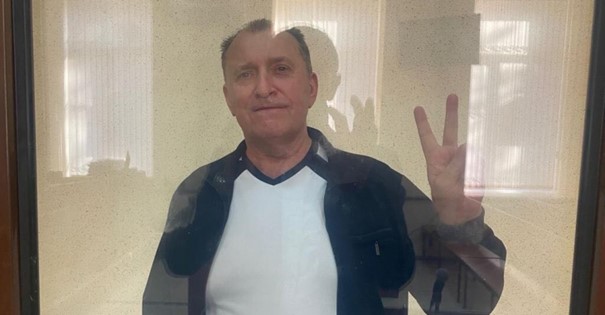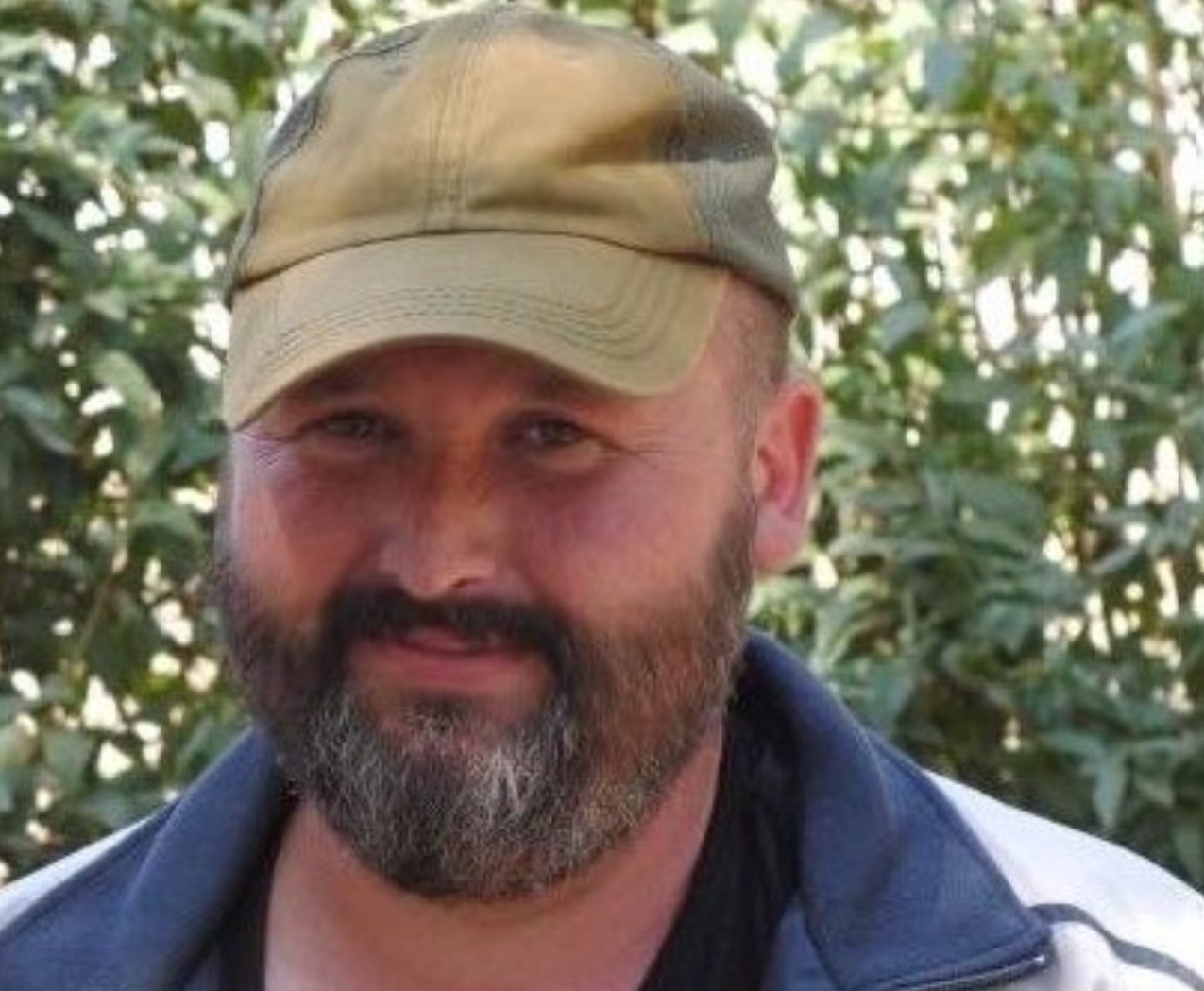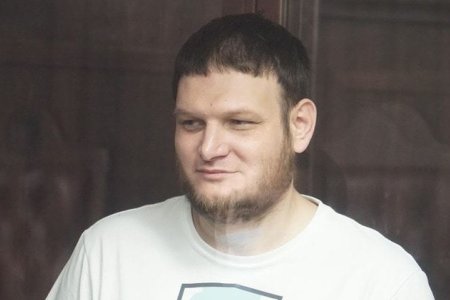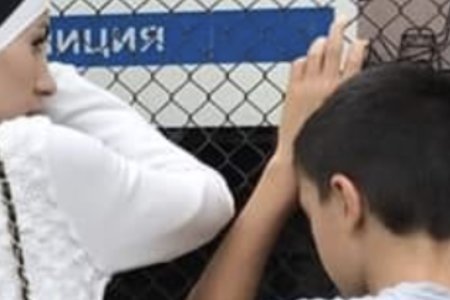
Although there had been political arrests from soon after the invasion, the terror against whole families began on 11 February 2016 with the armed ‘operation’ against Emir-Usein Kuku, a Crimean Tatar human rights defender and other Crimean Muslims. The FSB burst into multiple homes that day, terrifying children who awoke to find masked men brandishing machine guns pinning their fathers to the ground. Such gratuitous violence was aimed both at instilling terror in the Crimean Tatar community and at presenting a good show on propaganda media to justify the arrests of peaceful and law-abiding citizens on fabricated ‘terrorism’ or ‘sabotage’ charges.
The FSB swiftly developed a whole conveyor belt for such prosecutions which are known to bring them promotion or bonuses. Since the ‘terrorism’ charges were based solely on illicitly taped conversations about religion and politics and on the ‘testimony’ of dodgy ‘secret witnesses’, the FSB increasingly came for several members of the same families. All three sons of renowned Crimean Tatar historian Shukri Seitumerov have been imprisoned without even one of them being accused of a recognizable crime. In other cases, the Russians have held people incommunicado for long periods, using this time to extract ‘confessions’ through beatings, electric shocks, and other forms of torture.

Even where the political prisoners are held in SIZO [remand prisons] in occupied Crimea, their families have little chance of seeing them. In a major study for Graty,, human rights defender Lutfiye Zudiyeva spoke to the relatives of men originally imprisoned in occupied Crimea, including Taiisa Kiselyova, the 92-year-old mother of Oleksiy Kiselyov, former commander of the Ukrainian Navy’s Slavutych Command Ship, whom the Russian invaders abducted from occupied Henichesk (Kherson oblast). Kiselyov was targeted both because of his naval career and because of his civic activism on behalf of people, like him, forced to flee from occupied territory after Russia’s invasion. He was seized on 22 July 2022, and savagely tortured before being illegally taken to occupied Crimea where he faced surreal, and entirely lawless, charges. His elderly mother, who had not left Sevastopol after the invasion, was able to visit him at the Simferopol SIZO just once a month, speaking by telephone through a glass window. Taiisa Kiselyova says that those very limited visits “continued her life”. She is a widow, and has only her son, whom they Russian invaders have taken from her. After a fake ‘trial’ on preposterous charges, Kiselyov was sentenced to eight and a half years, with the first year in a prison, the harshest of all Russia’s penal institutions. After the appeal was, predictably, rejected, Taiisa Kiselyov wrote to the Russian penal service, pleading that her son be sent to a prison colony near Sevastopol, stating clearly that they held not only the life of her 59-year-old son in their hands, but hers also. It was only months later that she received a fob-off reply, by which time Oleksiy had been transferred to a prison in Vladimir. This is over two thousand kilometres away from Sevastopol and there is simply no chance that the 92-year-old, who is in poor health, could get there and back to visit her son. She has had only one letter from Oleksiy since he arrived at the Vladimir prison in the autumn of 2023, with this having taken a month to reach her.

Appeals have been lodged by many families of political prisoners who have, in violation of international law, been imprisoned thousand of kilometres from their families. Russia is ignoring these, as it has an unequivocal judgement from the European Court of Human Rights in March 2017. This found that imprisoning people thousands of kilometres away from their families is a violation of their right to family ties. The fact that Russia withdrew from this court in 2022, does not change the fact that it was binding upon Russia, yet flouted, for at least six years. The same right is also enshrined in other international agreements, such as the International Covenant on Civil and Political Rights.
Russia is prohibited by Article 49 of the Fourth Geneva Convention from applying its legislation on occupied territory, and from forcibly taking Ukrainian citizens to prisons in the Russian Federation. Russia must not be allowed to use the fact that such Ukrainian citizens have Russian citizenship as excuse for prosecuting them under Russian law as the aggressor state has made it impossible to live on the occupied territory, work, receive medical care, etc. without taking its passport.
An ever-increasing percentage of the Crimean Tatar and other Ukrainian political prisoners sent to prisons or prison colonies thousands of kilometres from their homes have been targeted for their refusal to remain silent about Russia’s repression or to conceal their pro-Ukrainian position. While such political prisoners in the last decades of the Soviet regime would also have been sent far from their homes, the sentences would have been considerably shorter. By fabricating ‘sabotage’, ‘terrorism’ or ‘spying’ charges, Russia has massively increased the sentences with men sentenced to 20 years without any crime. Very many have young children with some even born after their fathers were arrested and imprisoned. In occupied Crimea, the same children awakened by ‘officers’ with machine guns bursting into their homes, are prevented from even seeing their fathers during detention hearings as this, purportedly, could ‘traumatize’ them.
In most cases, political prisoners are taken to a SIZO [remand prison] near the notorious Southern District Military Court in Rostov. Even travelling there can be difficult for mothers with small children, but that is only the beginning. Once the predetermined sentences have been upheld at appeal level, most of the political prisoners are sent two to five thousand kilometres from Crimea, with the journey there often with many changes and lasting many days.
Journalist Remzi Bekirov was one of the 25 Crimean Tatar journalists and civic activists seized on 27 March 2019 or soon afterwards in an open attack on the Crimean Tatar human rights movement. He was moved from occupied Crimea to Rostov in 2021, and has since been sent to a prison colony in Yeniseisk, in Siberia. The Russian penal service’s violations of Remzi’s rights and those of his family are not confined solely to his imprisonment five and a half thousand kilometres from his wife and three young children. The journey from prison to prison on his way to Siberia took far longer than the stipulated limit of 20 days, with Remzi prevented throughout that time from having any telephone contact or even writing to his family, who were understandably desperate with anxiety.
Khalide Bekirova has also attempted to remind Russia’s penal service of its obligations under Russian and international law, also to no avail. Khalide herself recently underwent a serious operation and has been told to avoid the cold and the need to lift heavy items that such a journey would entail. This, however, is not the only problem. For her, as for very many wives, the trip, even without taking the children is simply prohibitively expensive. Russia has, effectively, removed any chance of Remzi’s children visiting him, and the only real contact is via letters.
The situation is similar for Gulnara Kadyrova, whose husband Ivan Yatskin was arrested late in 2019, while she was bearing their third child, a daughter. This time, Russia’s FSB came up with ‘treason through spying’ charges under Article 276 of Russia’s criminal code, with this enabling them to hold all hearings behind closed doors. It is near certain that both his 11-year harsh regime sentence and his appalling treatment in Russian captivity are because of his firmly pro-Ukrainian position.

Russia’s violation of its own criminal procedure code was even more flagrant in Yatskin’s case, with neither Gulnara, nor his lawyer having any idea where he was for almost two months. Ivan finally had no choice but to go on hunger strike, just to be able to call her and tell her where he was.
Gulnara spoke of the shock she experienced when she finally learned that he was imprisoned in Kemerov oblast, and saw on a map just how far that was from Crimea. Although very difficult to find the money, and extremely tough travelling with three small children, she says that she could not deprive her husband of the opportunity to at least see them all.
In Yatskin’s case, the formal request which Gulnara lodged for her husband to be imprisoned closer to Crimea was rejected on the pretext that the charge of ‘state treason’ precluded this. This is as unconvincing as the other formal pretext often used, namely that the political prisoners were sentenced to an initial term of imprisonment in a prison, and there are only seven such prisons all far from Crimea. Both excuses are difficult to take seriously since Russia has been sending Ukrainian political prisoners to the harshest and most isolated parts of the Russian Federation since 2015, whereas the period in a prison only became common considerably later.



